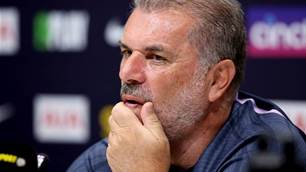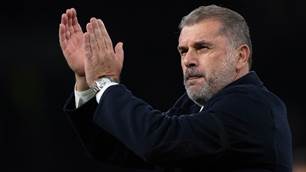After 21 years, Arsene Wenger has finally announced he will be leaving the Arsenal manager’s post. He finishes up as, by some distance, the most successful Arsenal manager in 133 years.
As readers of my work will know, I’ve been an Arsenal fan since 1972.
It wasn’t easy to be a Gooner in those days – being 12 years old and living on the far side of the planet – but on FA Cup night, 1972, I was allowed to sit up and watch the Cup Final for the first time and I had to pick either the red team or the white. Thank heavens I picked the red team! Because it’s been (mostly) a delight to be an Arsenal fan for the last 46 years.
You took the good with the bad. We weren’t particularly successful until George Graham came along (as manager rather than player) and I remember a handful of highlights over the years – like sitting naked in my living room in 1989 (in the dead of winter) as Kenny Dalglish strolled down to pitch-side to be with his players at the death. And death it was as Micky Thomas burst through and scored in the final seconds to send Arsenal top on goal difference.
That cost my brother in law $20…which he won back the following year. Then I won it for keeps in 1991 as Arsenal got up again.
George Graham was pretty successful by previous standards, and so it was with some bewilderment we all watched as he was dismissed in 1995 for taking bungs. Didn’t all managers take bungs? I thought it was one of the perks…
I went to London for the first time in 1995 to work for a couple of months and then go on a bit of a holiday. Naturally I made the Arsenal pilgrimages and it was a tad embarrassing to note in the museum at Highbury that about 90% of the exhibits were donated by George Graham (who was rumoured to have two gold cannons set in the concrete of his front yard).
There was a brief unhappy dalliance with Bruce Rioch (who did at least bring in Dennis Bergkamp – my all time favourite player) and then the Arsenal board appointed the unheralded, unknown and completely astonishing Arsene Wenger whose managerial career to that point comprised of Nancy and Monaco in his native France and Nagoya Grampus in Japan.
The fans were (mostly) outraged. “Arsene Who?” was the famous headline, but he very quickly turned the press and the fans around.
Wenger walked into a North London with a major cultural problem (which has been the subject of numerous documentaries over the years). He was odds on to fail but through a very special blend of psychology, diet and discipline, Wenger got first the players, then the fans, and even the press onside – all united under his uniquely scientific approach to football.
Oh, and he insisted the board bring in Patrick Vieira. A mate of mine rang me from London after Wenger’s first message to the fans (via the scoreboard) and Vieira’s debut. ‘Everything went through Vieira!’ he enthused. ‘The man’s a beast! He’s gonna bring us a league title for sure!’
That league duly title arrived in 1997/98 – Wenger’s first full season in charge. It was accompanied by the FA Cup as Arsenal did the double for the first time since 1971.
By the end of that season, Arsene Who had become (with Sir Alex Ferguson) one of the most authoritative voices in English football. People listened when Wenger spoke because he brought a completely fresh prism to the perception of the modern game. If you wanted to understand football then you had to understand Arsene Wenger.
The honours continued to roll in as Arsenal vied with Man United for all trophies between 1997 and 2005. Three league titles and four FA Cups in that time (and another three FA Cups later) – the tightness of their tussle is best demonstrated when you consider 1999 was United’s Treble Year, yet Arsenal could so easily have done the double themselves that year if not for the mercurial Ryan Griggs in the Cup semi replay and a bad result on the second last day of the league.
In 2005, Wenger’s stocks could not have been higher – rock solid as one of the two pre-eminent managers in English football and revered as probably the most profound thinker in the game. At that time, Arsenal determined to leave their beloved Highbury and move to Ashburton Grove (Emirates Stadium) in order to massively increase their capacity to generate the revenues necessary to become a genuine super club in the C21. It’s interesting to note that Arsenal had 36,000 on the waiting list for membership when they decided to leave Highbury and still had 36,000 on the waiting list a year after setting up at (60,000 capacity) Emirates.
This is when it all started to go bad.
When Arsenal left Highbury they asked the fans to be patient. It was going to take a few years to pay off the new stadium and the club would not (for a while) be able to compete for player talent with the cashed up nouveau riche such as Chelski and Manchester City. United, of course, had always been rich.
Okay, we’ll be patient, said the fans – but patience only lasts so long in the new world of social media and a 24/7 news cycle. Despite being the most successful Arsenal manager of all time, Arsene started to feel the heat of fan expectation. The Gunners went agonisingly close to winning the Champion’s League in 2006, when we led with just 10 or so minutes to go against Barcelona despite playing with 10 men after Jens Lehmann was sent off in the 18th minute.
Despite three FA Cups since then and several near misses in the league, and making the Champions League group phase for 21 years in a row, Arsene Wenger’s reputation was gradually eroded because the fans demand success.
In England, success is best defined by winning the league, but there are other indicators. Arsenal is one of the strongest and best known/loved football brands in the world. Under Wenger they evolved from Boring Boring Arsenal to a byword for exciting attacking play. They never finished lower than fourth until last year, under Wenger, and just about every other club or manager would take his record like a shot.
He did lose the fans (and maybe the players) in the last couple of seasons but absolutely EVERY Gooner across the globe will be grateful to Arsene Wenger and hailing him for his magnificent contribution to our magnificent club. Maybe he clung on just a little too long but it must be awfully hard to give up being manager of Arsenal – not least when coming fifth in the EPL is regarded as failure?
Really? Fifth is a fail?
It wasn’t just results. This is the man who rekindled the careers of Arsenal legends such as David Seaman, Tony Adams and the rest of the back four, Ian Wright, Paul Merson and Bergkamp, and oversaw the development of Arsenal legends like Patrick Vieira, Mark Overmars, Emmanuel Petit, Robert Pires, Nicholas Anelka, Thierry Henry and God knows how many others.
Arsene Wenger is a giant of English and world football – an innovator and philosophical genius who deserves to be remembered as primus inter pares in the great Arsenal pantheon.
I hope he continues to have a serious role with the club because In Arsene WeTrust (a bit).
Adrian’s latest book The Fighting Man is in the shops right now or available through Booktopia. Adrian also wrote Mr Cleansheets.
Related Articles

Postecoglou looking to A-League to 'develop young talent'
.jpeg&h=172&w=306&c=1&s=1)
Big change set to give Socceroos star new lease on life in the EPL













